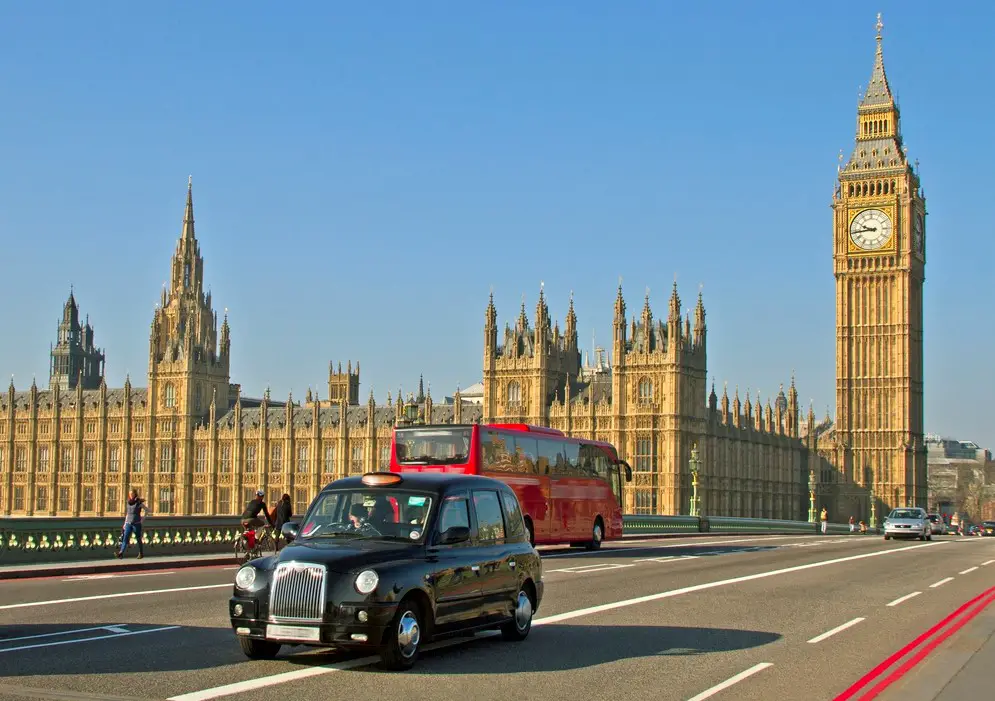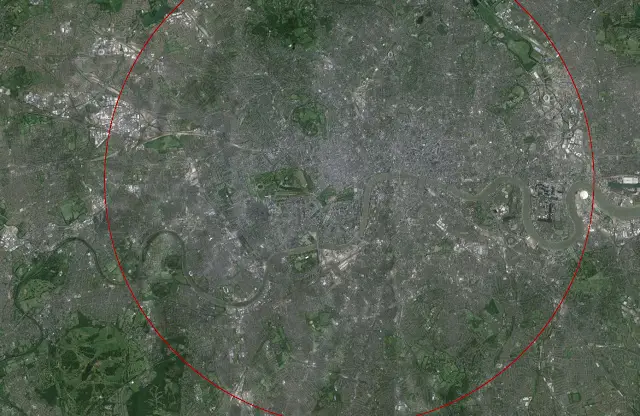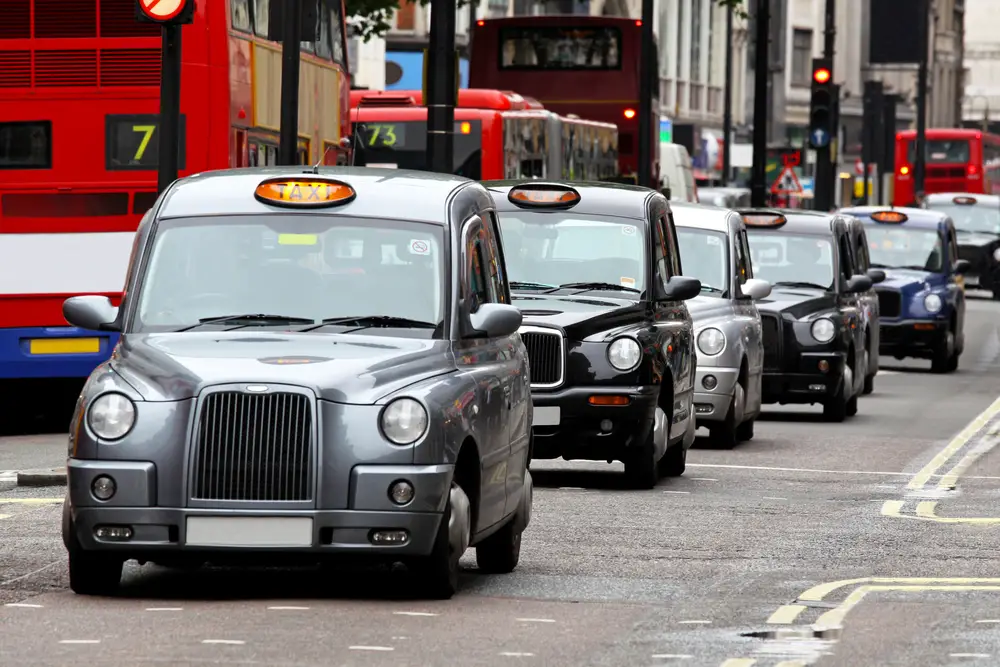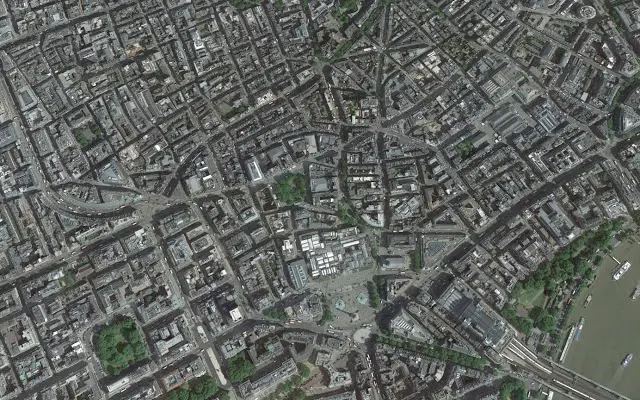
London city streets are notorious for being difficult to navigate or understand, but for London taxi drivers who have to ferry passengers to any part of the city without delay, an understanding of the maze of roads is imperative. That’s why London taxi drivers must pass one of the most difficult tests in the world that goes far beyond anything a GPS could tell them.
The test is known as the Knowledge, and it takes candidates, on average, four years of study. The test requires a tremendous amount of knowledge as the would-be cabbies study not only the streets, their names, and what direction they run, but also landmarks, restaurants, pubs, shops, and even small statues that would be difficult to see while even walking. The test has been compared to getting a law or medical degree, and if successful, the candidate earns the coveted “green badge,” which entitles them to drive the famous London black taxis.
The Knowledge tests an applicant on their knowledge of an area that is in a six-mile radius from Charing Cross, considered a center-point of London. That may not sound like much, but consider that inside that radius, there are around 25,000 individual streets. Some streets go one-way, some end abruptly, others circle, and each is lined with an untold amount of businesses and landmarks, each of which the candidate must know.
Every school, civil building, museum, and park is open game during an examination, and the applicant must know exactly what road to take and how to get there in the fastest and straightest line possible. The London Taxi and Private Hire (LTPH) administers the test, and it is an effort in persistence. There is no failing the examination, and an applicant either passes, or they give up trying.
The applicants for the test are known as knowledge boys, and in some cases, knowledge girls. They are first given a manual known as the “Blue Book.” Inside the book are 320 trips the Knowledge candidates must learn. They are required to drive each one, all 320, while finding the shortest route possible and anything that is on the path. The candidates do their runs mostly on motorcycles, and by the time they’ve finished all 320 trips, they would have covered the entire part of Central London. A written exam follows, and then the really tough part begins — the oral examination.
There isn’t just one oral examination either. A candidate meets first with an examiner in the LTPH headquarters. They’re required to name and recite the shortest route to a given destination while correctly naming all the streets. They are then given 56 days to study some more. As the candidate continues, they reach 28 days between oral examinations, then 21 days between. Each time the oral exam gets harder and usually more obscure.
If a candidate doesn’t make the grade, they are pushed back or “red-lined” to a previous cycle. For example, if a candidate doesn’t succeed on the 28-day cycle, they are then pushed back to the 56-day cycle to start again. The same goes for a problem at 21 days. They would then be pushed back to the 28-day cycle. If an applicant can make it to the 21-day portion, and receives the required number of points, they have passed the test and meet the requirements to drive the taxi.
What makes the Knowledge so incredibly difficult is due to the layout of London itself. Unlike cities in North America, which were usually laid out in a grid pattern, London has a mix of roads going in every direction. It’s the result of the density of the city, its age, and the constant spread and addition of streets and roads as London grew.
There are schools entirely devoted to the Knowledge. At an area known as Knowledge Point, ten schools do nothing but prepare knowledge boys and knowledge girls to take the test. Inside the schools, pupils learn the maps of the city, listen to lectures, and run routes over and over from various points in the city.
A job as a London taxi driver pays well, about $100,000 per year, if the candidate can make it through the rigorous test. It’s also flexible, making it an attractive occupation for many people. The drivers are self-employed, they keep what they make, and their schedule is entirely their own, but the cost can be steep in getting to that point.
Most applicants have to spend incredible amounts of time devoted to the test, which makes family life difficult, and many have to quit their jobs to pursue studying for the test full-time. The enrollment fee is about $800 US dollars, and the cost of daily study driving the routes, as well as lost income from not being employed, can run in excess of $100,000 for an applicant.
The origin of the Knowledge is thought to have started in 1851 during the Great Exhibition of that year because of complaints by tourists to the city about the cab drivers of the time. But the existence of the Knowledge wasn’t written down until 1884. In that year, 1,931 applicants applied to take the Knowledge exam.
Today there are about 25,000 of the famous black cabs in London, but there are also taxis called minicabs that number around 60,000. To be a minicab driver doesn’t require the extensive knowledge of London as is required of a driver of a black cab. These drivers just have to get a license, apply to drive the cabs, and then pass a test about the layout of London. These minicabs are cheaper than the black cabs, and are a sort of budget alternative since a black cab’s rates are some of the most expensive in the world, averaging around $43.
Black cabs have an advantage over minicabs, at least for now. According to the rules, black cabs are the only taxis that can be hailed from the street. But those rules may change as the rise in Uber drivers and other services gain traction.
Currently, the black cabs are still an icon of London and are as familiar as Buckingham Palace or the Thames River. The next time you happen to find yourself in London, you may be able to take one while knowing your driver has more than enough knowledge to get you to your destination. You may want to even ask them how long it took them to pass the Knowledge. They might be surprised you even know about it.
Sources: NY Times, A Cabbies London, National Geographic, The Knowledge Taxi, Taxi-Library




